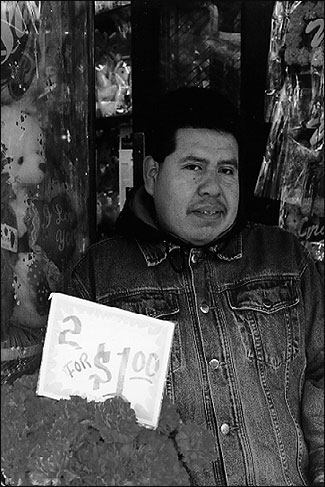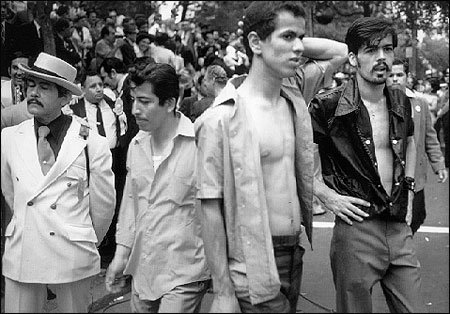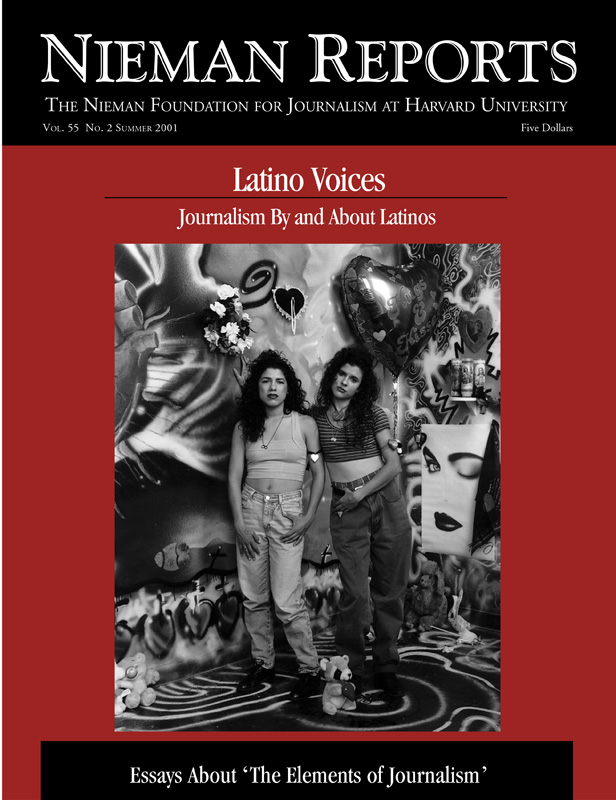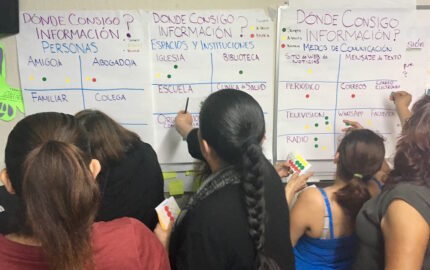
Photo by Vanessa López.
During my newsroom years, I’ve never felt any discrimination for being Latino. I don’t recall that my ethnic background was ever taken into consideration when being assigned a beat or a story.
Like hundreds of journalists working in Spanish-language media in the United States, I never had to deal with being a minority—one of only a handful of Latinos on staff. All of my peers and most of my managers—even at the upper level—were Latinos, too.
I’ve been fortunate to work at some of the top Spanish-language news outlets in the country. My very first journalism job fresh out of college was as a news writer at KMEX, the Los Angeles affiliate of the number one Spanish-language network, Univision. Years later I enjoyed an 11-year stint as an editor at the country’s largest Spanish-language daily newspaper, Los Angeles’s La Opinión.
While Latino journalists are usually the majority at Spanish-language newsrooms across the country, there are still specific barriers they confront. Surprisingly, a lot of these have to do with the very language in which we make our living. It isn’t enough that we have to master the language of our viewers or readers. But, as any reporter knows, most of the sources available to journalists in the United States—from medical and academic experts to politicians, civil servants and community activists—speak English.
Even when interviewees do their best to hablar español for a 30-second sound bite, the reading, research and real interviewing is usually conducted in English. That means that Spanish-language journalists have to be perfectly bilingual—a skill not required of most English-language journalists. And they must do a lot of translation to get their stories broadcast or published. Despite needing to possess this additional skill, journalists who work in Spanish-language media still earn much less, on average, than colleagues with the same assignments in English-language media. In many cases, it turns out to be a great deal less money for much more work.
Mastering Spanish can be a tricky proposition. Young journalists who were born in the United States, usually as members of a second or third generation of Latino immigrant families, have been attracted in recent years by the huge explosion of Spanish-language media in this country, especially TV news. While they see career opportunities, a chance to stay in touch with their cultural roots, and even the possibility of doing something for their struggling communities, the job itself can be very demanding.
This is especially the case when these young journalists go to work for older, Spanish-speaking, foreign-born editors who constantly challenge their abilities to perform in the sacred linguistic tradition of the most revered of Spanish novelists, Miguel de Cervantes, the author of “Don Quixote.” Rather than being encouraged or being helped with their Spanish, I’ve seen young journalists shot down for being too Pocho (Mexican American) or Nuyorican (New York Puerto Rican)—part of that hard to define, in-between group that is neither completely American nor Latino. Similar conflicts arise when the young reporter is trained in the United States and the editor’s primary experience has been in Latin America. In those countries, involvement in advocacy journalism and various conflicts of interest might not have been regarded as seriously as they are in the U.S. journalistic tradition.
At La Opinión, I was the entertainment editor through 1999. At first, I was horrified by some of the stories I heard. Older colleagues who worked in Latin America saw nothing wrong with moonlighting in entertainment public relations. An older columnist I know still fancies himself a songwriter and relishes the opportunity to meet and interview singers—and offer them a ditty or two on the side. (Happily, much has changed in Latin American journalism during the past 20 years, and the most serious newspapers there now strive for unbiased reporting.)
Most national Spanish-language news programs and magazines have adopted a type of “universal” Spanish with “neutral” pronunciation believed to be understood by everyone. This is a policy similar to that of the major networks, where anchors are not allowed to have a particularly heavy twang or accent. Language is an altogether different issue for local newscasts and publications; there, some editors mandate that only a certain type of regional Spanish is acceptable.
In the simplest of terms, this means that a Puerto Rican version of Spanish is called for in the Northeast, Cuban in South Florida, and Mexican in the Southwest. When metropolitan centers are no longer dominated by a single immigrant group, and when language—like everything else—suffers the effects of globalization, this seems a detrimental practice. It’s also detrimental for journalists looking for mobility. A Puerto Rican friend once told me that she could never work in Los Angeles TV news because news directors there considered her Spanish to be “not Mexican enough.”
Language issues are compounded by the fact that few of the major Spanish-language outlets have taken the time to compile and publish an internal stylebook. Nor has a universal Spanish stylebook been adopted by the industry. I am hopeful these barriers impeding Spanish-language journalists from doing the best job they can will be lifted with the same speed that Spanish-language media are expanding throughout the United States.
Recent efforts by organizations such as the National Association of Hispanic Journalists, which recently held a one-day Spanish-language conference in Los Angeles, are helping us to move in the right direction. But the onus rests with the outlets themselves, especially those networks and local stations that lead in the ratings, and newspapers and magazines that are increasing their circulation. They should invest the time and resources needed to make certain their journalists have the skills and tools that are required to compete in today’s aggressive and mobile news environment.
Of course, it would be nice, too, if those Latinos who report and edit the news were better compensated. That would really make Cervantes proud.

Photo by Pablo Figueroa.
Antonio Mejías-Rentas is a Los Angeles-based writer and arts and entertainment columnist with Hispanic Link Weekly Report, a national newsweekly focusing on U.S. Latino issues.



